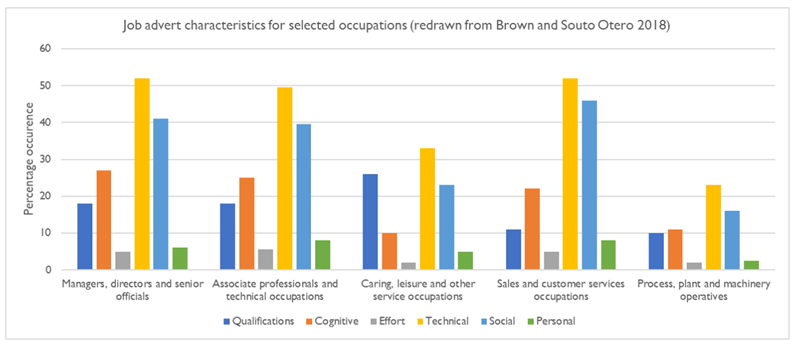Claim learners’ certificates by Friday 11 July. If your qualification doesn’t include an external assessment and learners are expecting results in August, make sure to claim certificates by this date. For qualifications with external assessments, claim within two working days of receiving confirmed results. Find out more on our timely delivery of results page.
How we’re revolutionising the landscape of enrichment in further education
Why educate?
Educationalists have long argued about the benefits of learning. Is it simply good for the soul and a vehicle for personal enlightenment? Or should it equip us with the skills required to become dutiful, productive members of the workforce? It’s a complex question, and the answer lies somewhere in the middle – but what cannot be disputed is that learning has the power to change lives.
At NCFE, our core purpose is to promote and advance learning to help create a fairer society. The learner sits at the heart of everything that we do. Our vision is to create a world where everyone has the right and opportunity to access the highest quality learning experiences, which are personalised to best meet their needs and support the achievement of their desired goals.
We believe that providing people with the opportunity to undertake a journey of lifelong learning will benefit the wider economy, increase social mobility, and ultimately lead to a better world.
Study programmes – more than just a qualification
The 2011 Wolf Report has formed the basis of many of the reforms to post-16 education. Its proposal that “institutions should be expected to offer and provide coherent programmes of study, within broad parameters, rather than being funded on the basis on (sic) individual qualifications” was the push for the education sector to take a more holistic approach to its learners’ experience.
The DfE now mandates that “all students funded through the 16 to 19 funding methodology must be enrolled on a study programme”, and that “all study programmes should include work experience and non-qualification activities, which complement the other elements of the programme”. This is undoubtedly a positive move, but there still exists a pitfall. The danger is viewing enrichment activities as some form of ‘bolt on’ – an afterthought once the important business of completing a qualification is dealt with.
Enrichment should instead be a core part of the educational landscape and be organically woven into every programme. Whilst core qualifications may provide subject-specific knowledge, a high-quality enrichment programme helps to develop something equally as important – essential skills.
How essential skills develop employability
In 2014, the Gatsby benchmarks for good careers guidance were published and highlighted how preparing students with employability skills is a necessity for social mobility, as “those young people without significant social capital or home support to draw upon have the most to gain from high-quality career guidance”. The development of these day-to-day, essential skills – such as adaptability, listening, problem solving, confidence and resilience – therefore feeds into our core purpose.
What’s more, in a 2018 paper, Phillip Brown and Manuel Souto-Otero of Cardiff University investigated the role of academic qualifications as a "currency of opportunity". They analysed over 21,000,000 job adverts to understand the kinds of skills that UK employers demand for certain roles. Their research suggested that “formal academic credentials play a relatively minor differentiating role in the UK labour market, as the majority of employers place greater emphasis on job readiness”.

Table showing job advert characteristics for selected occupations
The results clearly show that whilst academic qualifications clearly still have merit, a broad spectrum of less tangible skills are more attractive to potential employers. Indeed, only 18% of the total adverts viewed asked for formal credentials, whereas 24% stipulated that "communication skills" were important.
More than 'getting a good job'
To suggest that the only measure of educational success is obtaining a ‘good’ job is an outdated viewpoint. When we say that we want our work to benefit society, we shouldn’t just mean creating an effective workforce.
The type of enriched curriculum we’re building should fill students with emotional intelligence, creating ambitious, curious, discerning individuals who enter society with a sense of purpose and responsibility. In an era of misinformation, we want to help produce people who think critically about the information they are presented with and make informed, rational decisions – the kind of people who can change the world for the better.
How we’re enriching study programmes
We believe that every learner should have access to an enriched programme, regardless of their status or background.
We’ve developed a comprehensive suite of blended learning modules, each representing 2 planned learning hours (PLH) that complement learning and enhance transferable skills and confidence. They’re designed to be delivered in tutorial time, are fully resourced with session plans provided, and cover a variety of areas such as employability, digital skills, enterprise, personal development and more.
These resources come as standard with any NCFE core qualification at no extra cost, as we firmly believe that holistic programmes create well-rounded people and want to affirm this by providing a full package – not just lone qualifications.
With around 100 hours of content, these modules allow you to create a truly bespoke experience. If you have pupils who dream of starting their own business, you can pick more of the enterprise options. If your sector area is becoming more computerised, you can skew your delivery towards digital skills.
How you build your programme is entirely up to you and driven by the needs of your learners.
The future and our commitment to research
At NCFE, we want to truly understand the impact of enrichment on students’ lives. In June 2020, we began funding a 4-year longitudinal research project conducted by the University of Derby and AoC. This study aims to quantitatively analyse enrichment programmes across the FE sector and determine what works and what doesn’t.
Much of the focus in educational research has historically been on schools, with little attention devoted to FE institutions. We’re seeking to change that. A strong evidence base is crucial to improving the delivery of 16-19 education. In November 2021 at the Association of Colleges (AoC) Annual Conference, we presented the initial findings of the study and announced the Research Further initiative. We’ve once again partnered with the AoC to fund FE practitioners to do either an MPhil or a PhD specifically focusing on the sector.
Whether it be our current goal to provide fully enriched programmes to all centres or our pledge to enhance the future of the sector through research, ultimately, it all feeds back to achieving our core purpose – to promote and advance learning.
For more information on our enrichment offer, you can read more about our study programmes.
† : Brown, P. & Souto-Otero, M. (2018). The end of the credential society? An analysis of the relationship between education and the labour market using big data. Journal of Education Policy.
The type of enriched curriculum we’re building should fill students with emotional intelligence, creating ambitious, curious, discerning individuals who enter society with a sense of purpose and responsibility.


